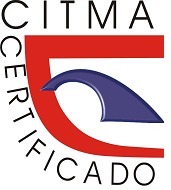CUBAN ADDRESSES GEOCODING IN A BIGDATA ENVIROMENT
Geocoding of Cuban postal addresses in a Big Data environment
Keywords:
address geocoding; Big Data; Map Reduce; postal addressAbstract
Due to the large amount of digital data available, the creation of systems capable of processing them has become a necessity. Spatial information is not exempt from this and because much of it is in the form of postal addresses, geocoding processes have acquired great importance. Geocoding is the process of converting a postal address into geographic coordinates. One of the approaches currently to process a large amount of data is the technologies associated with Big Data. A problem is considered Big Data when the data to be processed becomes inconvenient for current systems. The objective of this work is to design a geocoding process for Cuban addresses using a Big Data design. The results of this work demonstrate that it is feasible to use Big Data technologies to solve the problem of geocoding because the reduction of response times is achieved with respect to other services in the geocoding of a large number of postal addresses.
References
Aboul-Ella Hassanien, Ahmad Taher Azar, Vaclav Snasel, Janusz Kacprzyk, & Jemal H. Abawajy. (2015). Big Data in Complex Systems: Challenges and Opportunities: Springer International Publishing.
Alfonso Cantillo, O., Sánchez Ansola, E., & Guerra Denis, L. (2018). Geocodificación de direcciones postales cubanas utilizando computación paralela. Paper presented at the IV Congreso internacional de ingeniería informática y sistema de información, La Habana, Cuba.
Baesens, B. (2014). Analytics in a Big Data World: The Essential Guide to Data Science and its Applications: Wiley India.
Burrough, P. A. (1986). Principles of geographical information systems for land resources assessment (Vol. 12). New York: Clarendon Press.
Cruz Gutiérrez, A. A. (2011). Servicio de Geocodificación. Implementación en una Infraestructura de Datos Espaciales. Paper presented at the VII Congreso Internacional GEOMÁTICA 2011, La Habana.
de Armas García, C. J., & Cruz Gutiérrez, A. A. (2013). Deployment of a National Geocoding Service: Cuban Experience. URISA Journal, 25.
Girón Lima, L., & Sánchez Ansola, E. (2017). Servicios Basados en la Localización para GeoServer. Paper presented at the VIII Convención Agrimensura, La Habana.
Holden K., Konwinski,A., Wendell P., & Zaharia M., (2015). Learning Spark, lightning-fast data analysis. (First ed.): O’Reilly Media.
Kenneth Cukie, & Viktor Mayer-Schonberger. (2013). Big Data. A Revolution That Will Transform How We Live, Work, and Think. United Kingdom: Eamon Dolan/Houghton Mifflin Harcourt.
O’Reilly Media, I. (2017). Big Data Now. United States of America: O’Reilly Media, Inc.
Oracle. (2007). Oracle Spatial 11g: Administración Avanzada de Datos Espaciales para Aplicaciones Empresariales. United States of America.
Pitney Bowes, I. (2019). Spectrum™ Geocoding for Big Data User Guide. In P. B. S. Inc. (Ed.), (3.2 ed.). United States of America.
XuSen, FlexnerSoren, & CarvalhoVitor. (2012, Septembre 18-12, 2012). Geocoding Billions of Addresses: Toward a Spatial Record Linkage System with Big Data. Paper presented at the GIScience in the Big Data Age (GIScience 2012), Colombus, OH, USA.
Srinath Perera, & GunarathneThilina. (2013). Hadoop MapReduce Cookbook. Birmingham: Packt Publishing.
Teerayut Horanont, Jiranuwat Prapakornpilai, Santi Phithakkitnukoon, Apichon Witayangkurn, & Ryosuke Shibasaki. (2014). Space Profile-Based Reverse Geocoding Service Using Cloud Platform. Paper presented at the 2014 IEEE International Conference on Services Computing, Anchorage, AK, USA.
Xiang Li, Hakan Kardes, Xin Wang, & Ang Sun. (2014). HMM-based Address Parsing with Massive Synthetic Training Data Generation. Paper presented at the Proceedings of the 4th International Workshop on Location and the Web, Shanghai, China.
Downloads
Published
How to Cite
Issue
Section
License
Copyright (c) 2020 Ofir Alfonso Cantillo, Eduardo Sánchez Ansola

This work is licensed under a Creative Commons Attribution-NonCommercial 4.0 International License.













